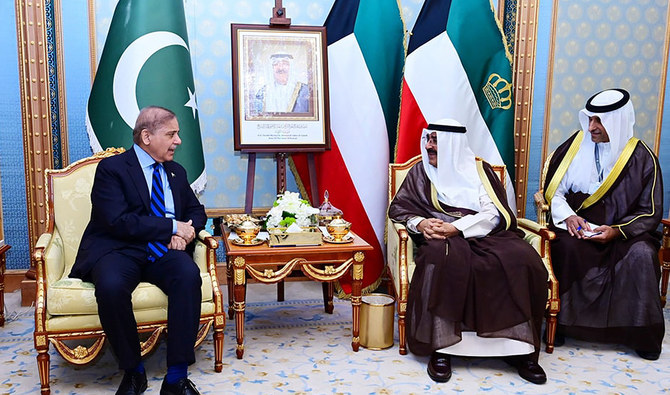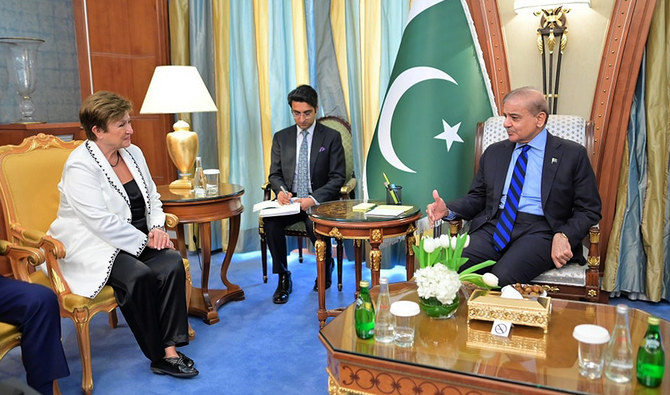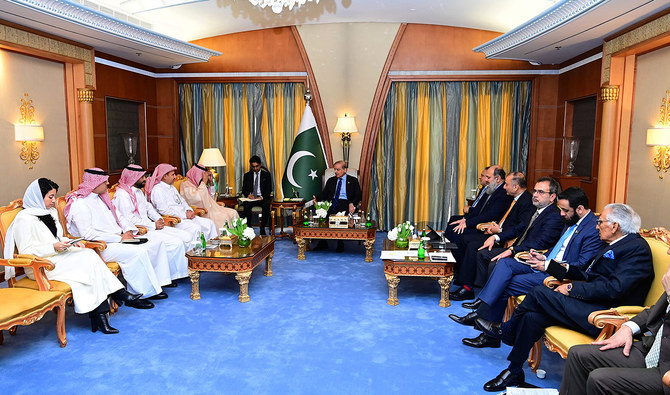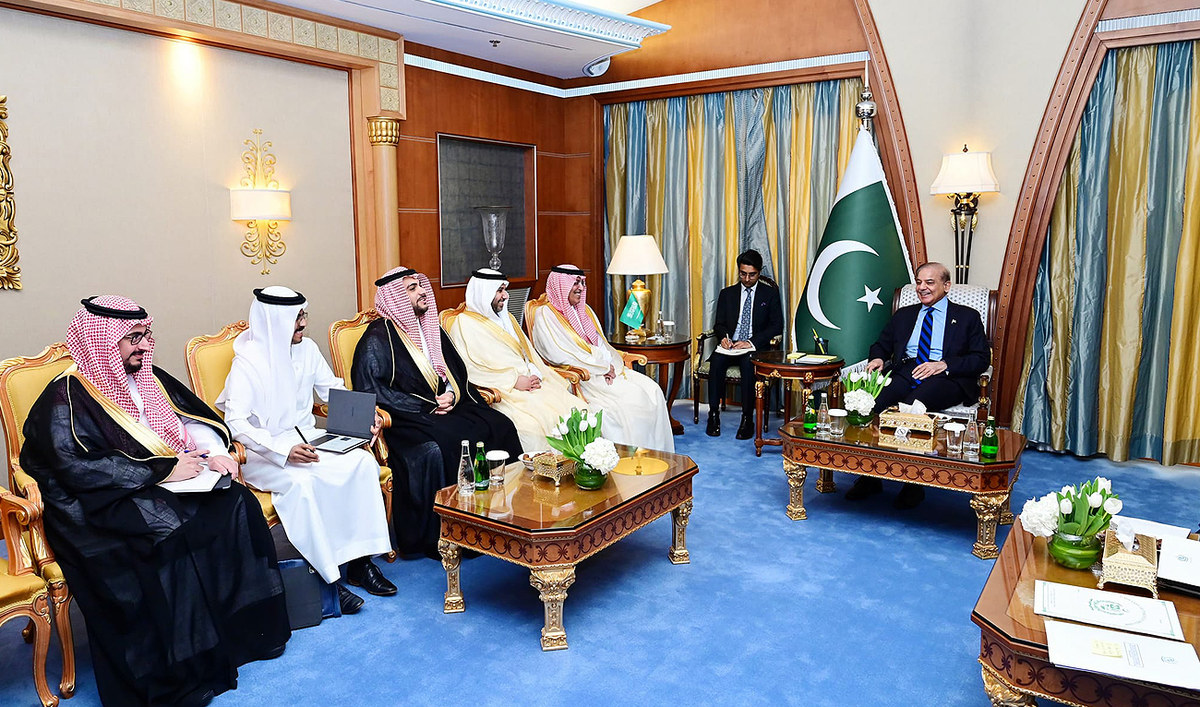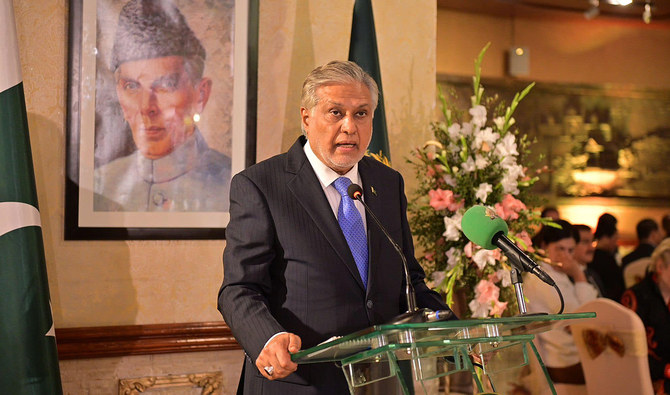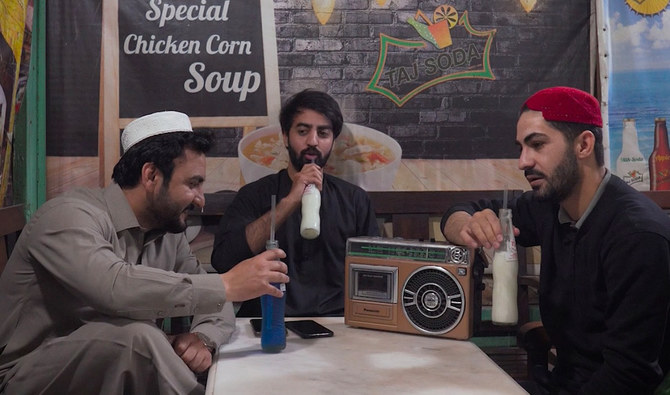QUETTA: For Balochistan’s “Baker Sisters,” February 13 was a busy day as the three women scrambled to prepare and deliver more than two dozen cakes ahead of Valentine’s Day in Quetta, the capital of the restive province in Pakistan’s southwest.
Urooj Fatima, 22, Sumaiya Batool, 23, and Aneesa Batool, 25, launched their online pastry shop, Plates of Flavour, less than two years ago after their father was forced to shut down his 35-year-old bakery due to security threats. Plates of Flavour was an instant success, and the sisters say they could not be happier carrying on their father’s legacy while also earning an honest living during a coronavirus pandemic that has pushed millions of people around the world into unemployment.
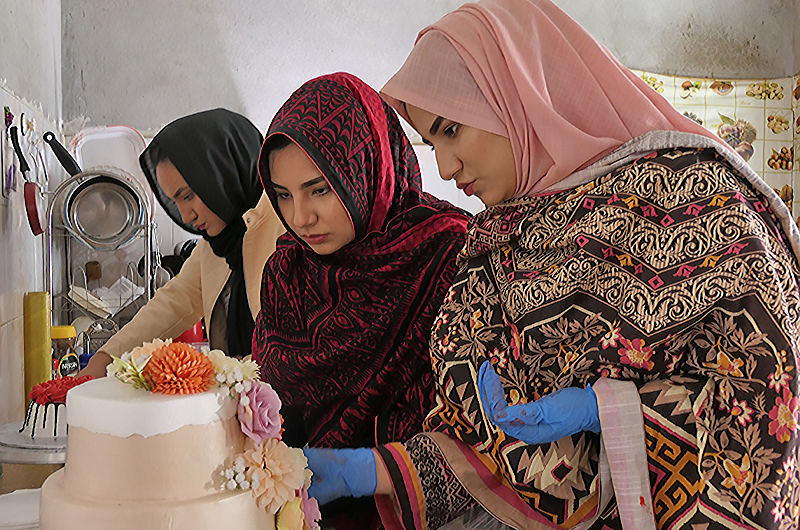
Hundreds of members of the Shia Hazara community in Pakistan — to which the three sisters belong — have been killed over the last decade in attacks, including bombings in schools and crowded markets and brazen ambushes of buses along Pakistani roads.
Despite improved security in recent years, partly because most Hazaras have moved into two large guarded neighborhoods in Quetta, militants continue attacks, such as an incident last month in which Daesh militants slit the throats of 11 Hazara miners.
“My father had a flourishing baking business in Kuchlak, a town about 29 kilometers from the provincial capital, but he lost it amid sectarian attacks in Quetta and its suburbs,” Urooj Fatima told Arab News.
Shutting down the bakery was a “financial bombshell” for the family, Fatima said, at a time when all the siblings were still studying.
“After our graduation, us sisters decided to set up an online business,” she added. “We have good culinary skills and decided to capitalize on that.”
The bakery has since diversified its menu as its online footprint has grown and regularly supplies biryani rice, sandwiches, curry, and even Chinese dishes to weddings and other events.
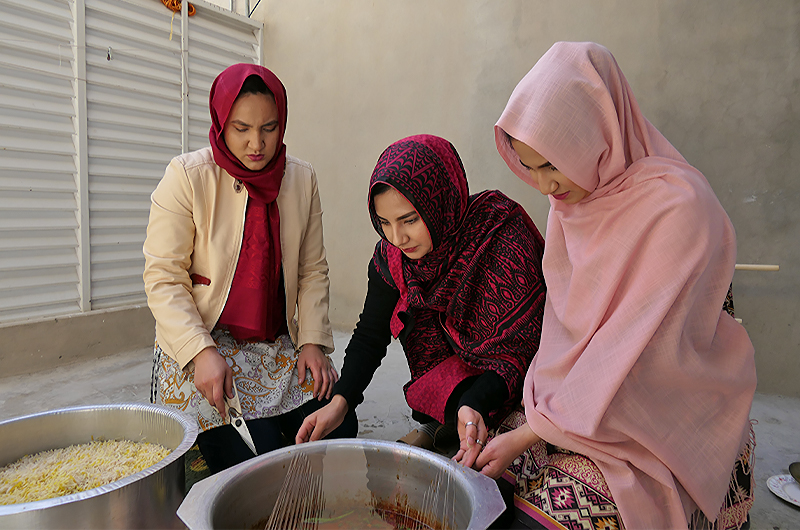
Urooj Fatima (left), Sumaiya Batool (centre) and Aneesa Batool decorate a cake for delivery at their home in Quetta, Pakistan, on February 12, 2021 (AN Photo)
“It’s sad that many parents in our society still pray for sons and consider their daughters as some kind of a burden,” Fida Hussain, the father of the girls, told Arab News. “I want to tell them to look at my daughters and see how they have strengthened the family and met its financial needs.”
He said when he got threatening letters from sectarian outfits and struggled with what to do, it was his daughters who encouraged him to close his business: “My daughters emboldened me, asking me not to put my life at risk.”
According to the Balochistan Shia Conference, hundreds of families in Balochistan have abandoned their businesses due to security threats over the last decade. The group’s president, Syed Dawood Agha, said nearly 80,000 people from the Hazara community had migrated to other countries to escape security threats and start afresh.
But Hussain said what happened to him was his “fate” and he was resolved to see his daughters succeed as entrepreneurs. He now helps them purchase ingredients and often delivers their orders for them.
“When my wife told me that our daughters had set up an online page and started taking food and bakery orders, I encouraged them and did my best to help them with my expertise and experience,” Hussain said.
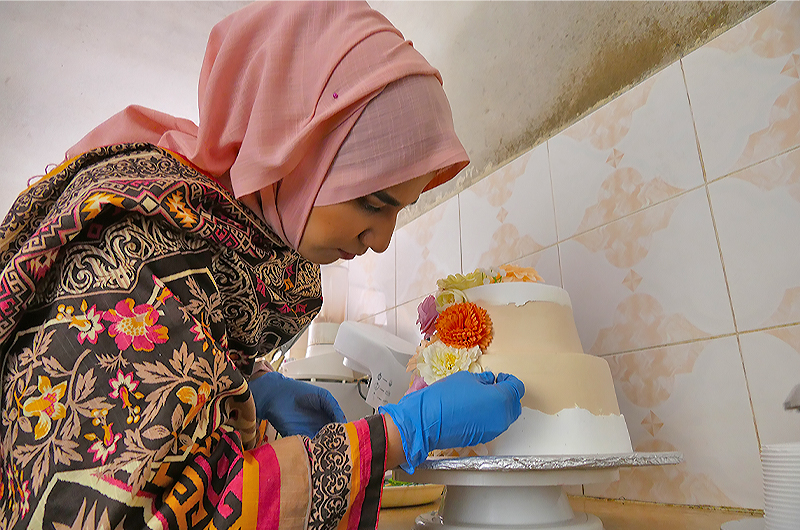
Aneesa Batool decorates a cake at her home in Quetta, Pakistan, on February 14, 2021 (AN Photo)
Sumaiya Batool told Arab News the business’s initial marketing strategy included distributing free food to introduce people to their menu.
“We also participated in a food festival in Marriabad in 2019, where we introduced fusion of food and bakery items that many people had never tasted before,” she said. “Fortunately, we are good at this since our mother has roots in Iran and we make Iranian dishes with Pakistani spices.”
In the kitchen, young Urooj Fatima mixed more butter into her dough and said she and her sisters had been working for 20 hours without even taking a nap.
“People all over Quetta are now following us on social media,” she said. “We keep receiving orders. But we need to do a lot more to expand our kitchen.”




